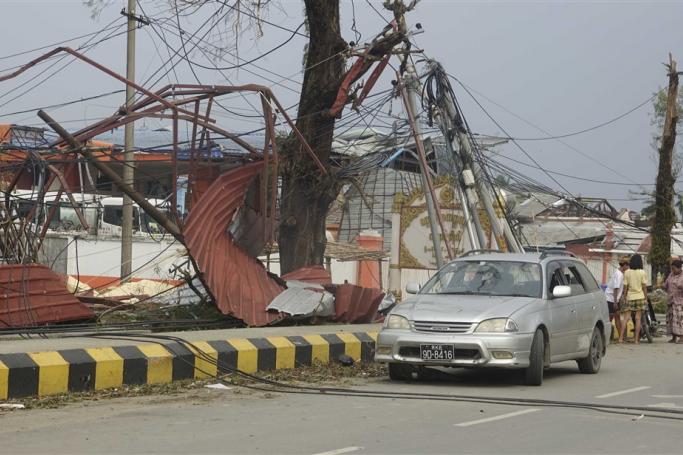UN Development Programme (UNDP) Resident Representative in Myanmar, Titon Mitra, said that time was of the essence for Cyclone Mocha-hit communities as food reserves were being “completely wiped out”, water sources needed to be urgently decontaminated and the monsoon was just “a matter of weeks away,” UN News reports.
Speaking from hard-hit Rakhine State capital Sittwe, Mr. Mitra indicated there was a dire need for access.
“The international community has to be given widespread access to the affected communities. And that's a very urgent requirement,” he said.
More than two weeks after deadly Cyclone Mocha hit Myanmar, aid access is uncertain, disease is spreading, and a major food crisis remains a very real threat, the UN noted recently.
Some 1.6 million people in Rakhine, Chin, Magway, Sagaing, and Kachin states are in dire need of assistance after Cyclone Mocha’s 250 kilometre per hour wind gusts destroyed homes, farmland and livestock, the report notes.
Last month, the UN launched a US$333 million Flash Appeal for Myanmar. While some assistance is coming through, Mr. Mitra said that it was “not anywhere near sufficient” for the time being due to a lack of access and support in rural areas remained “far from adequate”.
The UN official highlighted that a distribution plan has been submitted to the military authorities, stressing that “it needs to be cleared very soon, so international organizations with their CSO partners can move freely”.
More than two years since Myanmar’s generals staged a military coup, sparking widespread ongoing civil unrest and violence, Mr. Mitra insisted that “this really is a time for the depoliticization and the demilitarization of aid, because the needs are absolutely immense”.
The humanitarian aid drive is a mixed picture. Various aid organizations – both local and international – are at work distributing aid, but the distribution in the storm-hit areas appears checkered, with anecdotal accounts of people in need saying either they have not received aid or the amounts are small. Other communities indicate that aid is coming through.
Mr. Mitra said that the recovery may take years, pointing out that the majority of those affected were already “the poorest of the poor”.
Concerns are also mounting fast about the future of rural livelihoods, as some 1,200 square kilometres of land flooded due to Cyclone Mocha, while rains combined with storm surges devastated agriculture and fisheries, the report notes.
Mr. Mitra warned that the provision of relief itself was “not enough” and that if people are unable to plant food crops within the next few weeks, there could be a “major food crisis” emerging in the coming months.
“Households have completely lost their seed stocks. So, we are anticipating, unless there's an effective response, that food availability and affordability will become huge issues,” he insisted.
Last week, the UN included Myanmar in a list of 18 “hunger hotspots” where critical food insecurity is projected to intensify.












